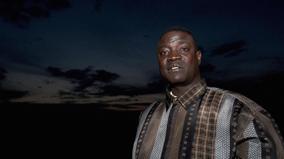New release
Coming
None
The Newcomers
1953
27 min
Leaving soon
All across Canada, at every level, national life is being enriched and strengthened by the talents and skills, as diverse as the countries from which they come, which are being poured into their adopted land by immigrants from the British Isles and Europe. This film travels to many places from coast to coast to present a visual inventory of the many ways in which Canada's expansion is being helped by the newcomers, who see fresh opportunities to develop existing resources--both economically and culturally--and who also arrive as the purveyors of specialized knowledge from abroad.

Details
All across Canada, at every level, national life is being enriched and strengthened by the talents and skills, as diverse as the countries from which they come, which are being poured into their adopted land by immigrants from the British Isles and Europe. This film travels to many places from coast to coast to present a visual inventory of the many ways in which Canada's expansion is being helped by the newcomers, who see fresh opportunities to develop existing resources--both economically and culturally--and who also arrive as the purveyors of specialized knowledge from abroad.
-
directorDavid Bennett
-
scriptDavid Bennett
-
producerTom Daly
-
photographyDonald Wilder
-
editingDouglas TunstellFergus McDonell
-
musicLucio Agostini
Education
Ages 13 to 16
School subjects
This short film depicts Canadian immigration in the post–World War II years, but provides only positive examples. Faced with such a biased documentary, students can be urged to apply the proper perspective. Is immigration always such an easy process? What are the advantages and disadvantages of a host society? This can lead them to draw up a portrait of immigration today, very different from that shown in the film.

















